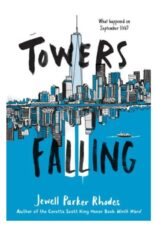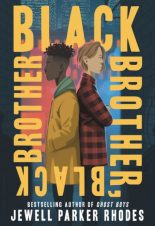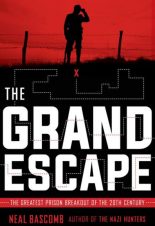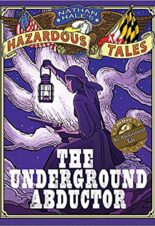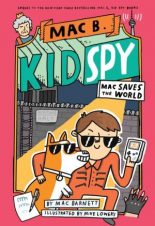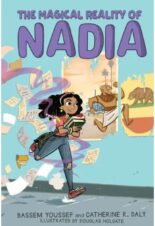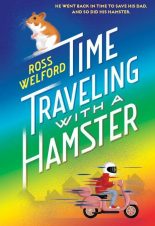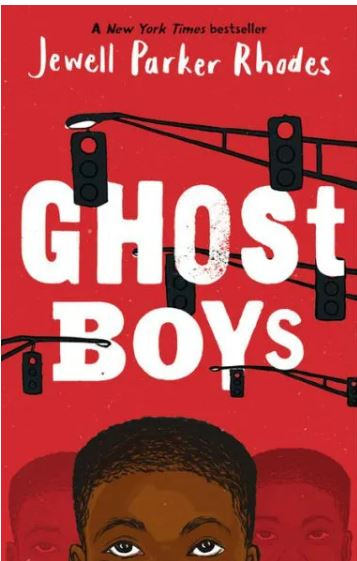
Buy This Book
“Only the living can make the world better. Live and make it better. Don’t let me (or anyone else) tell this tale again,” Jerome Rogers. –Ghost Boys
Ghost Boys
by Jewell Parker Rhodes
AR Test, Diverse Characters, Must Read
10+
Score
3.0
204
When twelve-year-old Jerome Rogers is shot and killed by a police officer, his ghost watches his family and the world around him shake in the wake of his death. Upset and frustrated, he doesn’t understand why this had to happen–why a police officer would confuse a kid with a toy gun for a grown man, and why no one administered any medical care at the scene. Jerome is mad that this often happens to black folks like him. Then, Jerome meets another ghost boy named Emmett Till, who teaches him about the United States’ long legacy of discrimination against black people, and especially black boys.
Jewell Parker Rhodes’ Ghost Boys is a gripping story about violence, grief, and the devastation caused by systemic racism. Jerome laments about how he’ll never get to grow old, and that he has to leave his family behind. He witnesses the court proceedings deciding the fate of the police officer, and he sees his family’s reaction when the judge decides that there is not enough evidence for a trial. It is wholly unfair, and Jerome struggles with this unfairness throughout much of the novel. It is by Emmett Till’s explanation of history that Jerome learns he can still look after kids who have been wronged and that maybe we can take steps toward change.
A couple of people can see Jerome’s ghost and interact with him. His grandmother has some inkling that he’s there, but Jerome spends most of his time speaking with Sarah, the daughter of the police officer. She grapples with internalized biases, and they help each other understand that they can still create change for the better, even though their worlds are categorically messy. It is through Sarah and Emmett Till that Jerome comes to accept his death and realizes that sharing his story will hopefully help prevent events like this in the future.
Rhodes doesn’t hold back in Ghost Boys. Although this book details violence and tragedy, she does an excellent job using these details to move the plot along and help the characters grow. Her choice to include the historical case of Emmett Till is also well done, and Emmett’s inclusion in the book helps balance out Jerome’s other primary interactions as a ghost.
Ghost Boys is an emotionally difficult book, and the target audience should be middle-grade readers and older readers who find themselves ready for this intensity. The tragedy of this book is not that it is violent, but rather that this is our unfortunate reality. The names of real-life black people killed by the police are scattered throughout the book, reminding us that this book doesn’t exist in a vacuum. For all the gravitas that Ghost Boys brings, it is an important read for understanding grief and compassion, and by the end, there is still a glimmer of hope that maybe people can change for the better.
There are many great book options for middle-grade readers who want to explore racism in more detail including The Lions of Little Rock by Kristin Levine, A Good Kind of Trouble by Lisa Moore Ramée, From The Desk of Zoe Washington by Janae Marks, and The Parker Inheritance by Varian Johnson.
Sexual Content
- Jerome dreams about what it would be like for him to be able to grow up. On his list of things he would’ve done, he mentions, “Real is me having a girlfriend. (Maybe.)”
Violence
- The protagonist, Jerome, is shot and killed by police officers who mistook his toy gun for a real one. As a ghost watching himself outside his body, Jerome describes his body, saying, “Laid out flat, my stomach touching ground. My right knee bent and my brand-new Nikes stained with blood. I stop and stare at my face, my right cheek flattened on concrete. My eyes are wide open.”
- Jerome’s Ma pokes him while emphasizing that she wants him to be educated. Jerome says, “Sometimes the poke hurts a bit. But I get it.”
- Jerome is afraid of some bullies at school because they “like to dump [his] backpack. Push [him], pull [his] pants down. Hit [him] upside the head.” This is a common occurrence when Jerome describes his time at school.
- Jerome notes that the new kid, Carlos, is going to get a beating from the school bullies. Jerome says, “New students are beat-down magnets.”
- The bullies attack Carlos in the school bathroom. Jerome describes, “Mike punches Carlos. He falls backwards. Then, Mike and Snap are both kicking Carlos. In the stomach. The head.” This scene continues for two pages.
- Jerome stands up to the bullies on behalf of Carlos, and Carlos pulls a gun on the bullies, surprising everyone. Jerome describes, “We all turn. Carlos has a gun.” It turns out later that it’s a plastic toy, and that’s how Carlos got it past school security.
- Jerome doesn’t like seeing his mom upset. He says, “seeing Ma crying makes me want to crush, slam something into the ground.” He does not act on these impulses.
- Jerome’s dad is upset over his son’s death at the hands of a policeman. While speaking with the rest of the family about the injustice, Jerome describes, “Pop’s fist slams the wall. The drywall cracks. I’ve never seen Pop violent.”
- Many references are made to slavery and violence against black people in the United States. Jerome’s dad says, “Tamir Rice, 2014. He died in Cleveland. Another boy shot just because he’s black . . . No justice. No peace. Since slavery, white men been killing blacks.”
- Sarah, the daughter of the police officer, can see Jerome’s ghost. She tells him that she’s sorry, and Jerome thinks, “If she wasn’t a girl, I’d think about hitting her.”
- Ever since her dad killed Jerome, Sarah’s parents have been arguing. Jerome and Sarah both hear noise coming from downstairs. “A door slams. Sarah’s mom and dad are shouting. Glass breaks.”
- Jerome becomes angry, and in his ghost form his “hand connects. Peter Pan flies across the room. The book hits the wall, drops to the floor.”
- Emmett Till died in 1955. He was lynched by a group of men, and the scene lasts for two pages. Jerome watches Emmett’s memories, describing, “The husband fires the gun, sparks fly. Emmett’s spirit rises. With barbed wire, the men lash Emmett’s body to a large wheel. They drag, shove the wheel into the river. Watch it sink. Blood stains the riverbank.”
- In one of the final chapters, the reader experiences Jerome’s death in first person. Jerome says, “Pain slams me. Two fire sticks are inside me. Burning, searing my right shoulder and lower back. What happened? What happened to me?” This description goes on for a couple of pages.
Drugs and Alcohol
- Jerome says that, “I know Ma will remind [Grandma] to take her blood pressure pill.”
- Jerome describes a lot a few blocks away from his home. He says, “A meth lab exploded there and two houses burnt.”
- Jerome describes some drug dealers who happen to deal two blocks away from his school. He says, “drug dealers slip powder or pill packets to customers, stuffing cash into their pockets. Pop says, ‘Not enough jobs, but still it’s wrong. Drugs kill.’”
- After killing Jerome, Sarah’s dad “drinks, stares at the TV.”
Language
- Mild language is used occasionally. Terms included are stupid, dumb, and crazy.
Supernatural
- Jerome dies and becomes a ghost, watching over his family for much of the book.
- Jerome meets Emmett Till’s ghost, who was a real-life boy who was killed in 1955.
- From Sarah’s window, Sarah, Emmett, and Jerome can see “a shadow. Then, another. And another. Another and another. Hundreds, thousands of ghost boys standing, ever still, looking up, through the window into our souls.” It is then clarified that these are the ghosts of thousands of black boys who have been killed.
Spiritual Content
- Grandma has “premonitions . . . worries about bad things happening.” She tells Jerome that she receives these premonitions in the form of bad dreams.
- Grandma has superstitions, and Jerome states that she likes to do things in threes because it’s “Grandma’s special number.”
- Grandma tells Jerome, “Three means All. Optimism. Joy . . . Heaven, Earth, Water. Three means you’re close to the angels.”
- For Jerome’s funeral, Reverend Thornton makes an appearance. He says to Jerome’s family, “We should pray.” To this, Jerome’s dad says, “What for? Jerome’s not coming back.”
- Grandma expresses her belief in spirits and the afterlife, saying, “Every black person in the South knows it’s true. Dead, living, no matter. Both worlds are close. Spirits aren’t gone.” Her words are dismissed by the reverend and by others as mere superstition.
- Emmett Till talks about his mother’s beliefs, saying, “‘Family and faith,’ that’s what mattered, she said.”
- Jerome’s grandma has an altar to her late husband. Jerome describes, “Every Sunday, Grandma lights candles and talks to a picture of Grandpa in a sailor’s uniform.”
- Carlos tells his dad that he “wants to honor Jerome” on Day of the Dead. The Day of the Dead ceremony goes on for a chapter.
“Only the living can make the world better. Live and make it better. Don’t let me (or anyone else) tell this tale again,” Jerome Rogers. –Ghost Boys
Latest Reviews
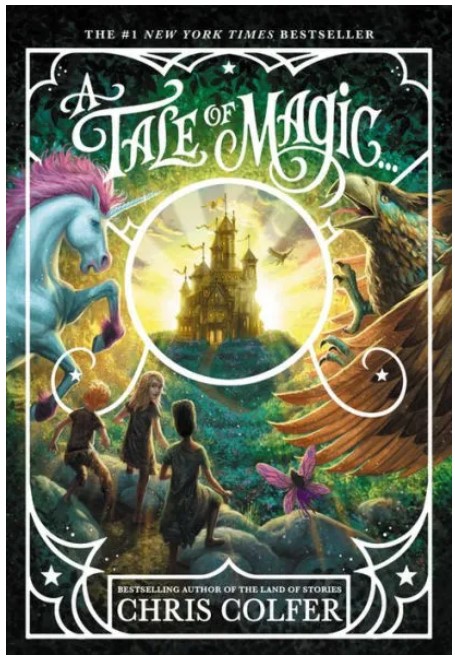
A Tale of Magic

The Immortal Fire

Grace Hopper: Queen of Computer Code

Girls Who Code: Learn to Code and Change the World

Alone

Friends Fur-Ever

Harry Houdini: A Magical Life

The Greedy Gremlin

Hoop Genius: How a Desperate Teacher and a Rowdy Gym Class Invented Basketball

